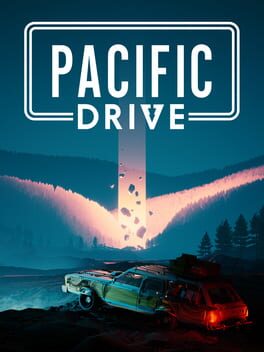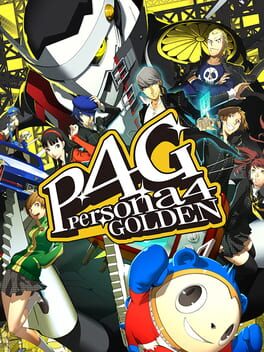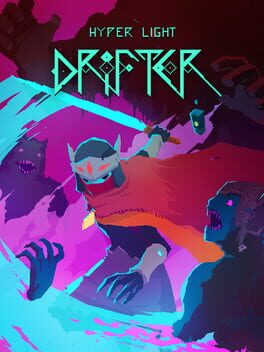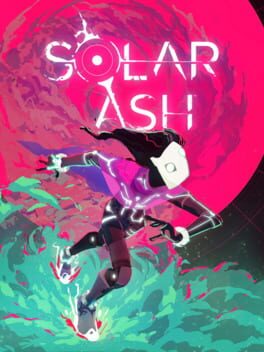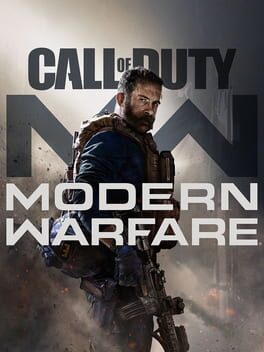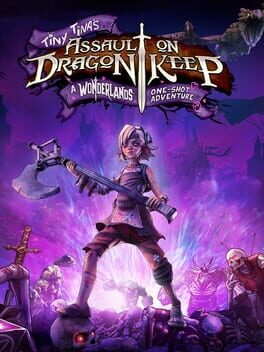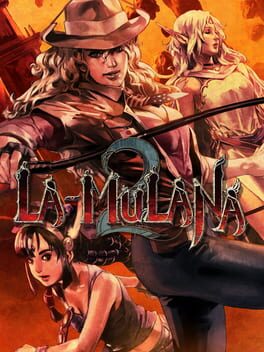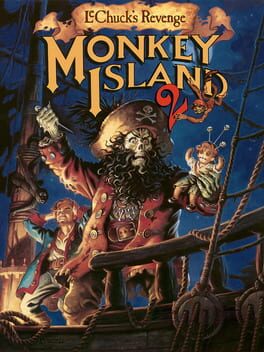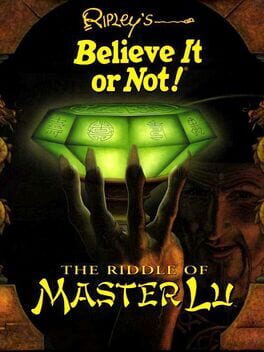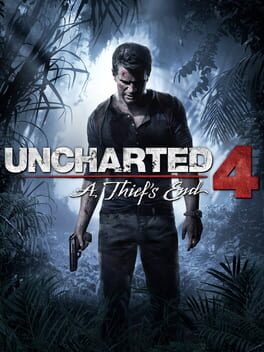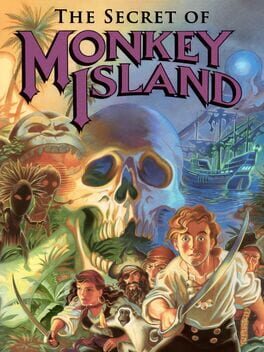AaronElWhite
22 reviews liked by AaronElWhite
Citizen Sleeper
2022
Overboard!
2021
Great premise. You push your husband overboard on a boat (murder) and then you have the rest of the day to set up events so not only will you be found innocent but also it will be considered a murder. The reason? Sweet sweet life insurance checks.
You will have to play many loops to find stuff out about passengers, their schedules, and how to manipulate things. However the ending felt pretty unsatisfactory for me. Why? I guess because I didn't really plan it to happen it just sort of happened during the investigation. It felt like, "oh, this is what the game wants." Cool idea. You can get it for cheap on steam sales nowadays, still worth checking out if it floats your boat.
You will have to play many loops to find stuff out about passengers, their schedules, and how to manipulate things. However the ending felt pretty unsatisfactory for me. Why? I guess because I didn't really plan it to happen it just sort of happened during the investigation. It felt like, "oh, this is what the game wants." Cool idea. You can get it for cheap on steam sales nowadays, still worth checking out if it floats your boat.
Pacific Drive
2024
I hate to shelve yet another game this year, but Pacific Drive’s somber tone, air of mystery and gameplay loop were fun at first, and quickly lost their charm and became tedious.
As far as gameplay goes, the real standout thing here is the tactility. Manual control is everything in Pacific Drive: you have to manually toggle the wipers, transmission, and the headlights, regularly refuel your car, recharge its battery and repair/replace every part of your station wagon’s outer shell. The replacements do have a tangible effect on gameplay, as well. A new set of wheels, or even just one of your old wheels getting loose or punctured have an effect on your car’s handling that is very much felt. The same tactility applies to out-of-the-car gameplay, too, though to a much lesser degree. You’re taught to disassemble everything and anything you come across in the Zone, but not every thing is interactable - far from it. Most doors are permanently locked, most anomalies are basically untouchable, and most of the tech in the zone is affixed to the floor.
The issue of limited freedom in general is the one you notice pretty much right away. The first minutes of Pacific Drive see you drive a car you can’t exit or modify, then you’re led through a string of highly directed tutorials where simple actions get introduced one at a time in a very limited environment. You literally are not able to do stuff like siphon fuel from a roadside wrecked car until you’re specifically told to by Oppy, at which point you’re finally allowed to do this very simple thing. This feeling of “there’s nothing to do until the game decides it’s time” persists well into the middle portion of your playthrough, at which point all illusions thoroughly break down and the game becomes predictable and simply boring. You settle into a routine: unlock some new recipes, repair/replace parts of the car, get on the road, go to a place, gather three thingamajigs to start a visually impressive but transparently non-threatening and directed sequence of doing a warthog escape through a portal, OR go through a gate on the other side of the area to do the previous routine in another place. Gathering supplies, avoiding anomalies and maintaining your car doesn’t change quickly enough: by the time I got to Mid-Zone I’ve already taken like 6 identical drives through the Outer layer, so it’s hard to be impressed by or interested in anything anymore. You know?
It’s a shame because I genuinely was starting to become invested in these kooky scientists’ past and present struggles, and if anything, the narrative and character work in this game are surprisingly decent. Too bad all you do is drive to a place and grind for new car parts!
Tentative 6/10, might change in the future
As far as gameplay goes, the real standout thing here is the tactility. Manual control is everything in Pacific Drive: you have to manually toggle the wipers, transmission, and the headlights, regularly refuel your car, recharge its battery and repair/replace every part of your station wagon’s outer shell. The replacements do have a tangible effect on gameplay, as well. A new set of wheels, or even just one of your old wheels getting loose or punctured have an effect on your car’s handling that is very much felt. The same tactility applies to out-of-the-car gameplay, too, though to a much lesser degree. You’re taught to disassemble everything and anything you come across in the Zone, but not every thing is interactable - far from it. Most doors are permanently locked, most anomalies are basically untouchable, and most of the tech in the zone is affixed to the floor.
The issue of limited freedom in general is the one you notice pretty much right away. The first minutes of Pacific Drive see you drive a car you can’t exit or modify, then you’re led through a string of highly directed tutorials where simple actions get introduced one at a time in a very limited environment. You literally are not able to do stuff like siphon fuel from a roadside wrecked car until you’re specifically told to by Oppy, at which point you’re finally allowed to do this very simple thing. This feeling of “there’s nothing to do until the game decides it’s time” persists well into the middle portion of your playthrough, at which point all illusions thoroughly break down and the game becomes predictable and simply boring. You settle into a routine: unlock some new recipes, repair/replace parts of the car, get on the road, go to a place, gather three thingamajigs to start a visually impressive but transparently non-threatening and directed sequence of doing a warthog escape through a portal, OR go through a gate on the other side of the area to do the previous routine in another place. Gathering supplies, avoiding anomalies and maintaining your car doesn’t change quickly enough: by the time I got to Mid-Zone I’ve already taken like 6 identical drives through the Outer layer, so it’s hard to be impressed by or interested in anything anymore. You know?
It’s a shame because I genuinely was starting to become invested in these kooky scientists’ past and present struggles, and if anything, the narrative and character work in this game are surprisingly decent. Too bad all you do is drive to a place and grind for new car parts!
Tentative 6/10, might change in the future
Persona 4 Golden
2020
Persona 4 Golden is a narrative mystery game with style and depth applied to every choice along the way.
At a pure systems level, the Persona mechanics are fascinating enough. By building social links through meaningful engagement with the folks about town, you then drive forward your ability to fuse more powerful monsters significant to some central tenant of each person’s identity.
This is not only appealing on a mechanical front, as the entire narrative wraps around allotted time for the player-granted story you want to tell. Want a romantic relationship or perhaps never to talk to this person?
So, beyond mechanical layers of how Persona games work, they also feed into this visual novel choice system slotted perfectly into an RPG.
Not every moment is inspiring but so many are inspired. It’s the little things, a big accumulation of little things that begin to resemble one big story about a kid from outside town wrapped in a surreal murder mystery.
The Midnight Channel, as the wraparound thematic storytelling device, is a fascinating lens that pairs with the era just before the game in Japanese media, about appliances, technology, and translating the traditional Ghost story into the context of device culture.
That we visit these abstract dungeon crawling spaces through the access point of a television is an interesting device to create strange worlds with equally strange shadows.
Every device and element of Persona 4 Golden is reflected back unto itself. Each layer affects another layer. There is a whole depth of role-playing systems at work, which allows more nuance, if not more intrinsic focus, to popular companion RPGs, with Personas being more engaging at a system level than Pokémon, and allowing a multi-sided fight mechanic that pushes the RPG Battle Concept forward in many ways. Hard to imagine going back to anything like this game, that is not this game.
The Atlus house style is so immediately striking. The gold-black menus are beautiful and provide a thematic feeling to how the game presents itself. The jingle inside Junes plays delightfully in your mind long after the game. The audio motifs are as specialized and focused as the visual ones, and just as unique.
The visual layer, where the player moves around spaces and interacts with the game, are equally singular. It feels like a one-of-a-kind town, with memorable residents, and branching choices of what to do for work, friendship, and good old grinding. All the systems work together, even in the overworld that is largely a hub to decide what the characters do that day.
It’s a fascinating game to break apart and look at the systems inside. All of them are good and complimentary. There are peculiar choices, a couple characters with regressive messaging (especially Kanji, but occasionally everyone), and there’s that weird end point before the actual end of the game, not at all telegraphed, so you’ll need to grab a guide.
Part of these abstractions are inherent in the appeal, wherein you’re finding your way around systems and obscure personality types while trying to also solve for a puzzling murder. As a cumulative example of role-playing design across multiple levels, Persona 4 Golden is one of the best out there.
Most importantly, you’ll never forget so many of the small moments or how the game makes you feel, and it makes you feel so many things but most of all it is delightful.
At a pure systems level, the Persona mechanics are fascinating enough. By building social links through meaningful engagement with the folks about town, you then drive forward your ability to fuse more powerful monsters significant to some central tenant of each person’s identity.
This is not only appealing on a mechanical front, as the entire narrative wraps around allotted time for the player-granted story you want to tell. Want a romantic relationship or perhaps never to talk to this person?
So, beyond mechanical layers of how Persona games work, they also feed into this visual novel choice system slotted perfectly into an RPG.
Not every moment is inspiring but so many are inspired. It’s the little things, a big accumulation of little things that begin to resemble one big story about a kid from outside town wrapped in a surreal murder mystery.
The Midnight Channel, as the wraparound thematic storytelling device, is a fascinating lens that pairs with the era just before the game in Japanese media, about appliances, technology, and translating the traditional Ghost story into the context of device culture.
That we visit these abstract dungeon crawling spaces through the access point of a television is an interesting device to create strange worlds with equally strange shadows.
Every device and element of Persona 4 Golden is reflected back unto itself. Each layer affects another layer. There is a whole depth of role-playing systems at work, which allows more nuance, if not more intrinsic focus, to popular companion RPGs, with Personas being more engaging at a system level than Pokémon, and allowing a multi-sided fight mechanic that pushes the RPG Battle Concept forward in many ways. Hard to imagine going back to anything like this game, that is not this game.
The Atlus house style is so immediately striking. The gold-black menus are beautiful and provide a thematic feeling to how the game presents itself. The jingle inside Junes plays delightfully in your mind long after the game. The audio motifs are as specialized and focused as the visual ones, and just as unique.
The visual layer, where the player moves around spaces and interacts with the game, are equally singular. It feels like a one-of-a-kind town, with memorable residents, and branching choices of what to do for work, friendship, and good old grinding. All the systems work together, even in the overworld that is largely a hub to decide what the characters do that day.
It’s a fascinating game to break apart and look at the systems inside. All of them are good and complimentary. There are peculiar choices, a couple characters with regressive messaging (especially Kanji, but occasionally everyone), and there’s that weird end point before the actual end of the game, not at all telegraphed, so you’ll need to grab a guide.
Part of these abstractions are inherent in the appeal, wherein you’re finding your way around systems and obscure personality types while trying to also solve for a puzzling murder. As a cumulative example of role-playing design across multiple levels, Persona 4 Golden is one of the best out there.
Most importantly, you’ll never forget so many of the small moments or how the game makes you feel, and it makes you feel so many things but most of all it is delightful.
Hyper Light Drifter
2016
Hyper Light Drifter
2016
I must express my absolute adoration for the soundtrack of the game. The electrifying tunes captured me from the first minute and never let go. It reminded me a lot of the music from Boards of Canada, which is one of my favorite bands. Moreover, this kind of music suits the setting of HLD perfectly: a cyberistic, post-apocalyptic world where beauty still exists amidst death and decay.
In terms of gameplay, it flows smoothly, and the fights have a good variety to them. You have many weapons at your disposal, and it feels great to mix things up with slow and heavy attacks, dashes, and gunshots. However, the balancing feels a bit off, as I felt too powerful after some upgrades, particularly in some of the boss fights. I think the developers could have increased the damage of some bosses to make them more challenging, which apperently is a thing in NG+.
HLD also has a fantastic feature where you can chain up dashes by pressing the button at the exact same millisecond. At first, I thought it was impossible to do it more than three times, but with some practice, I mastered it. It's such a rewarding feeling to almost fly through the beautiful world in hyper speed.
While I don't have particularly strong feelings about the pixel aesthetic, it's pleasant to look at and fits the setting. However, I wonder how it would look with the same art style as Hollow Knight.
The story of HLD is cryptic and only shown, not told. I enjoyed it, as NPCs tell their stories through pictures in their heads, and players can fill in the gaps with their imagination.
In terms of gameplay, it flows smoothly, and the fights have a good variety to them. You have many weapons at your disposal, and it feels great to mix things up with slow and heavy attacks, dashes, and gunshots. However, the balancing feels a bit off, as I felt too powerful after some upgrades, particularly in some of the boss fights. I think the developers could have increased the damage of some bosses to make them more challenging, which apperently is a thing in NG+.
HLD also has a fantastic feature where you can chain up dashes by pressing the button at the exact same millisecond. At first, I thought it was impossible to do it more than three times, but with some practice, I mastered it. It's such a rewarding feeling to almost fly through the beautiful world in hyper speed.
While I don't have particularly strong feelings about the pixel aesthetic, it's pleasant to look at and fits the setting. However, I wonder how it would look with the same art style as Hollow Knight.
The story of HLD is cryptic and only shown, not told. I enjoyed it, as NPCs tell their stories through pictures in their heads, and players can fill in the gaps with their imagination.
Solar Ash
2021
Having restarted my journey with this game recently on Hard Mode, it kills me to see this game not get the love I really think it deserves. The game is absolutely gorgeous to look at, and most importantly it is incredibly fun to play. Navigating through these environments as fast and stylishly as your character does it is always satisfying and rewarding. The movement mechanics are the heart of the experience with this game and it never gets dull. Every environment in this game is like a beautiful surrealist painting, and generally the art direction is a masterclass throughout.
For a game explicitly about the impending doom of your planet, the game offers a surprising amount of levity in world and character design that does not interfere with the story this game is trying to tell. The team at Heart Machine are top of their class in emotional story telling, and Solar Ash is no exception. The swelling music as you make your final runs at a boss will always stick in my head when thinking about this game; it's practically magical. By the time you come to the end of your journey in the Ultravoid, the game offers a deep meaningful take away message that I wasn't expecting but absolutely appreciated. What feels particularly great about playing a Heart Machine story is that the themes and story beats, while they may take place in far off alien places, feel incredibly personal to the developers and insanely human. The game is not perfect by any means and could certainly tighten up a few aspect relating to smaller enemy encounters and rewards given by exploring the environment. All that being said, this game is the first 3D title the studio has put out and in light of all the things the team absolutely nailed with this game, it should be far more celebrated and appreciated. It may not be as tightly designed as Hyper Light Drifter, but it is absolutely a majorly positive contribution to Heart Machines catalogue that I'll easily recommend to anybody looking for a stylish movement platformer.
For a game explicitly about the impending doom of your planet, the game offers a surprising amount of levity in world and character design that does not interfere with the story this game is trying to tell. The team at Heart Machine are top of their class in emotional story telling, and Solar Ash is no exception. The swelling music as you make your final runs at a boss will always stick in my head when thinking about this game; it's practically magical. By the time you come to the end of your journey in the Ultravoid, the game offers a deep meaningful take away message that I wasn't expecting but absolutely appreciated. What feels particularly great about playing a Heart Machine story is that the themes and story beats, while they may take place in far off alien places, feel incredibly personal to the developers and insanely human. The game is not perfect by any means and could certainly tighten up a few aspect relating to smaller enemy encounters and rewards given by exploring the environment. All that being said, this game is the first 3D title the studio has put out and in light of all the things the team absolutely nailed with this game, it should be far more celebrated and appreciated. It may not be as tightly designed as Hyper Light Drifter, but it is absolutely a majorly positive contribution to Heart Machines catalogue that I'll easily recommend to anybody looking for a stylish movement platformer.
Solar Ash
2021
Shadow of the Colossus meets Sunset Overdrive here, Heart Machine made something to be very proud of in Solar Ash.
Gameplay flows extremely smoothly, and solve all your problems through extreme feats of balance and finesse. It can feel like a Sonic game at times even. The art direction is top tier as well, so many vast, beautiful landscapes with intense coloration and surreal geometry.
The narrative structure of the game where you go through the main story, one stranger subplot and one voidrunner subplot each level really encourages you to explore the entire level. You really feel for all these characters, too. They're well written and performed.
The boss battles are the real crown jewel here, though. Similar to Shadow of the Colossus, you need to hit multiple points on the giant to kill them, but with Solar Ash, you have to do it three times, with the course changing and getting more difficult each time. Watching yourself sail through these sequences at high speed is insanely satisfying.
Definite recommendation from me on this one
Gameplay flows extremely smoothly, and solve all your problems through extreme feats of balance and finesse. It can feel like a Sonic game at times even. The art direction is top tier as well, so many vast, beautiful landscapes with intense coloration and surreal geometry.
The narrative structure of the game where you go through the main story, one stranger subplot and one voidrunner subplot each level really encourages you to explore the entire level. You really feel for all these characters, too. They're well written and performed.
The boss battles are the real crown jewel here, though. Similar to Shadow of the Colossus, you need to hit multiple points on the giant to kill them, but with Solar Ash, you have to do it three times, with the course changing and getting more difficult each time. Watching yourself sail through these sequences at high speed is insanely satisfying.
Definite recommendation from me on this one
A few weeks ago I tried to play this only to find I had to install around 40GB worth of "additional content packs" on top of Warzone and Vanguard (2 games I didn't want or buy) - After installing every single pack and quite literally OPENING THE GAME to confirm that it worked, I left it a few weeks so I could come back without the negative attitude the situation had given me.
A couple weeks has passed, I haven't touched a damn thing and what do ya know, I'm now supposedly missing every single pack for it.
At this rate I will never play this game, all because some fucking dickhead at Activision decided "Oh let's put MW on the box, but actually give them fucking Warzone."
AAAAAAAAAAAAAAAAAAAAAAA
A couple weeks has passed, I haven't touched a damn thing and what do ya know, I'm now supposedly missing every single pack for it.
At this rate I will never play this game, all because some fucking dickhead at Activision decided "Oh let's put MW on the box, but actually give them fucking Warzone."
AAAAAAAAAAAAAAAAAAAAAAA


